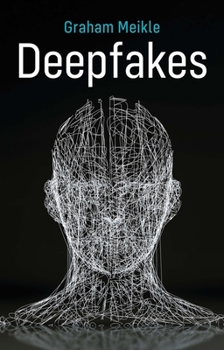Deepfakes
Select Format
Select Condition 
Book Overview
What happens when we can no longer believe what we see? Show the AI technologies that create deepfakes enough images of Donald Trump, Scarlett Johansson or yourself, and they can generate a convincing video in which that person appears to say and do things they have never actually said or done. The result is a media environment in which anyone's face and image can be remixed and manipulated.
Graham Meikle explains how deepfakes are made and how they are used. From celebrity porn, political satire, and reanimating dead artists to movie mashups, alternative histories and disinformation campaigns, this book explores themes of trust and consent as face-swapping software becomes more common. Meikle argues that deepfake videos allow for a new perspective on the taken-for-granted nature of contemporary media, in which our capacity to remix and share increasingly conflicts with our capacity to trust. The book analyses how such videos deepen the social media environment in which the public and the personal converge, and in which all human experience becomes content to be shared.
Timely, clear, and accessibly written, this is essential reading for students and scholars of Media, Communication, Cultural Studies and Sociology, and will be of interest to anyone who wants to better understand contemporary digital media.





